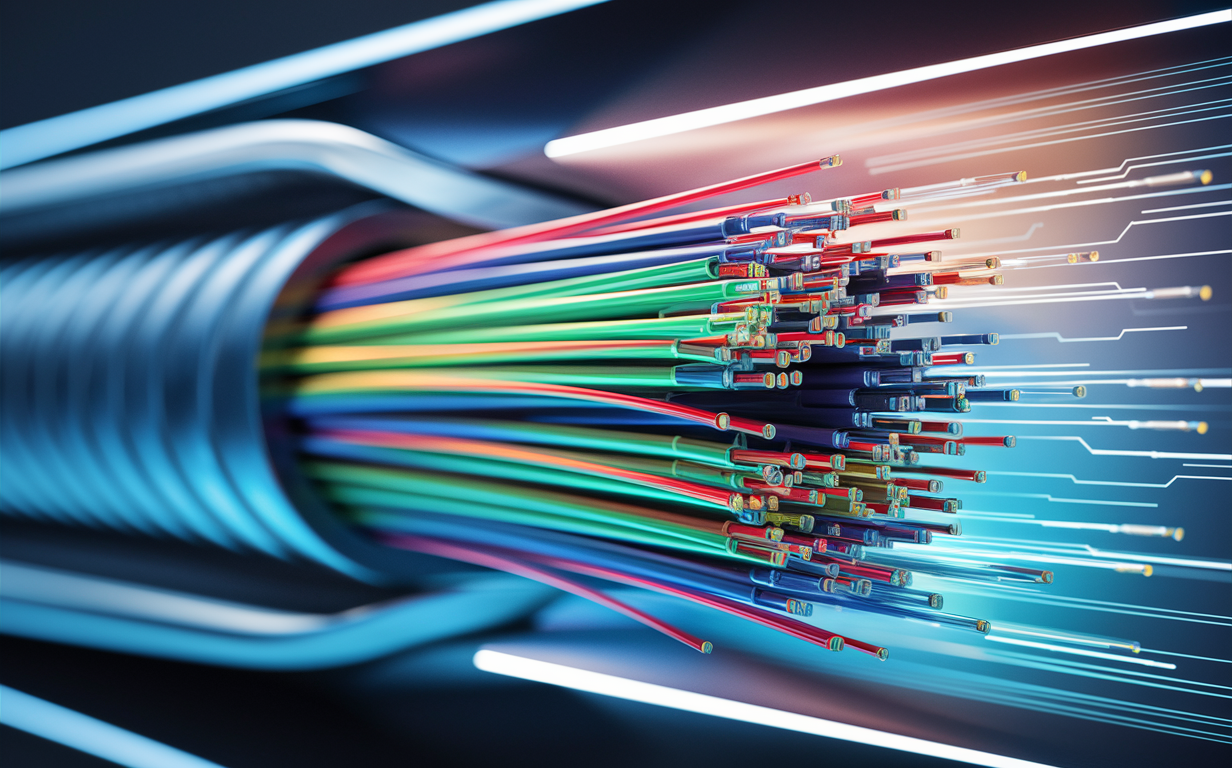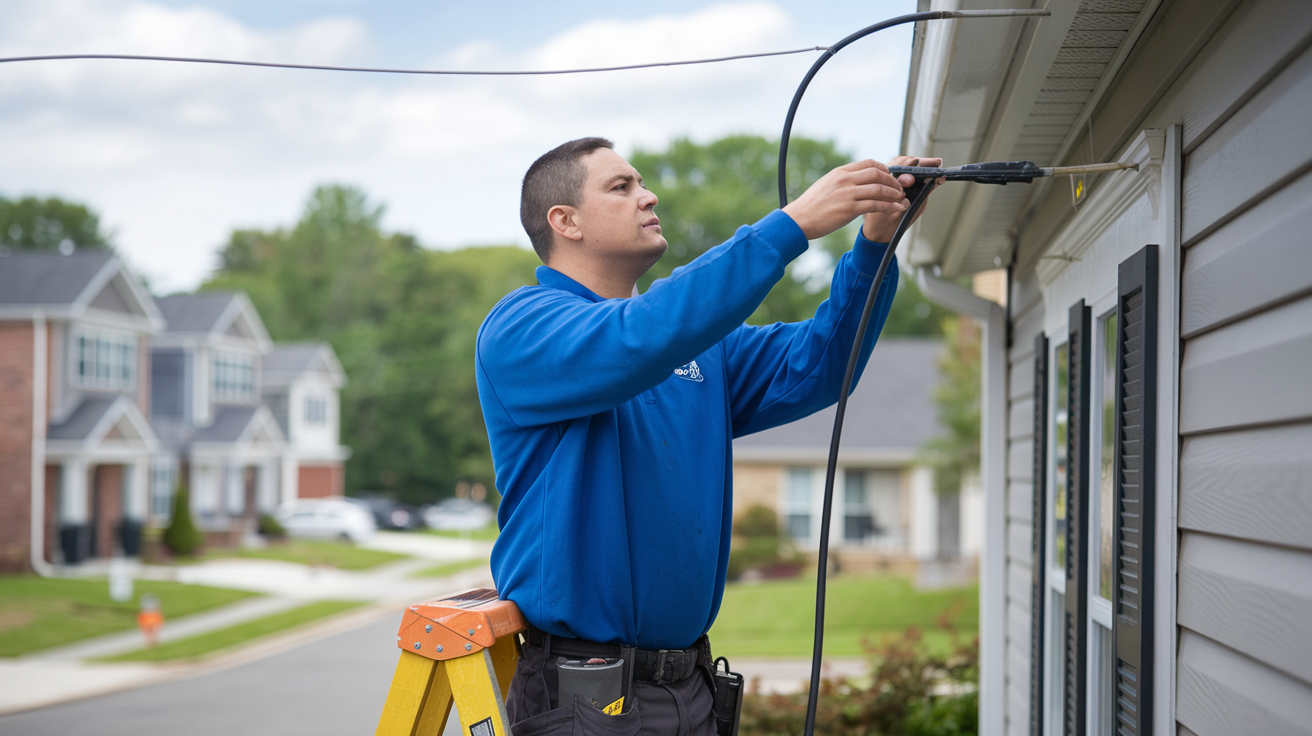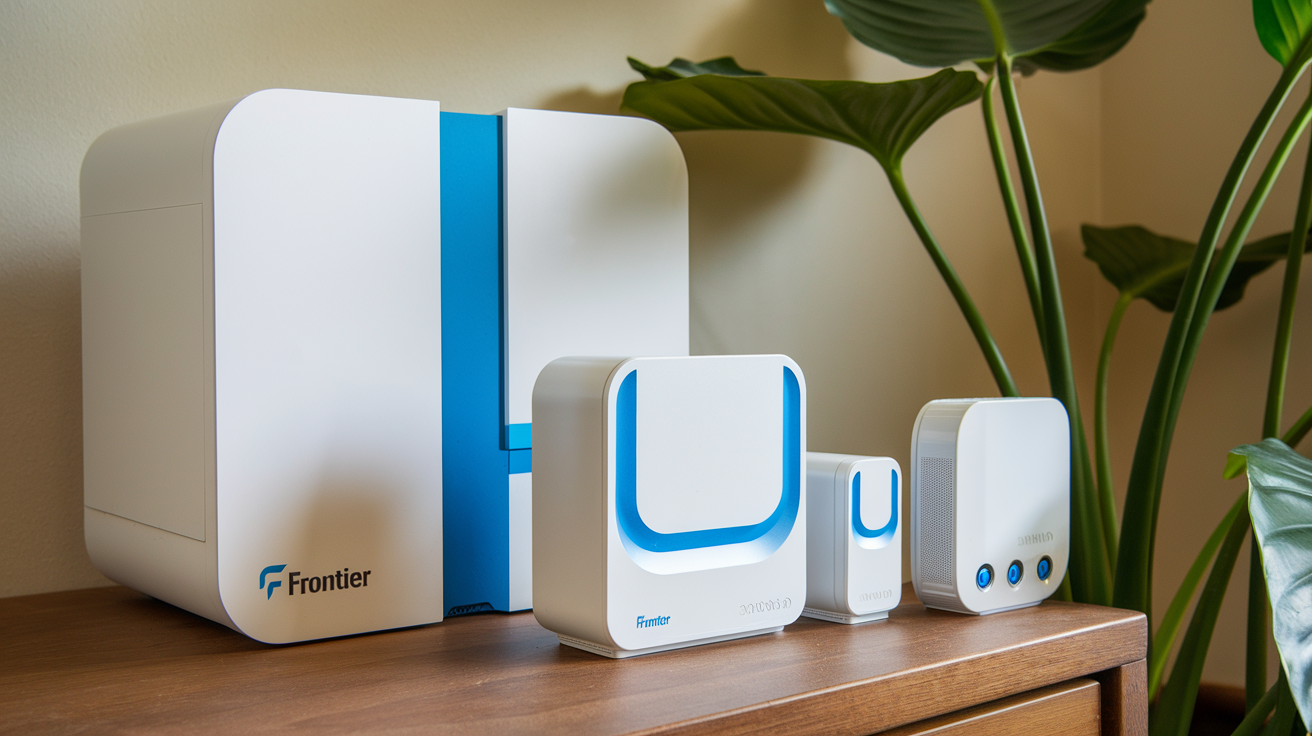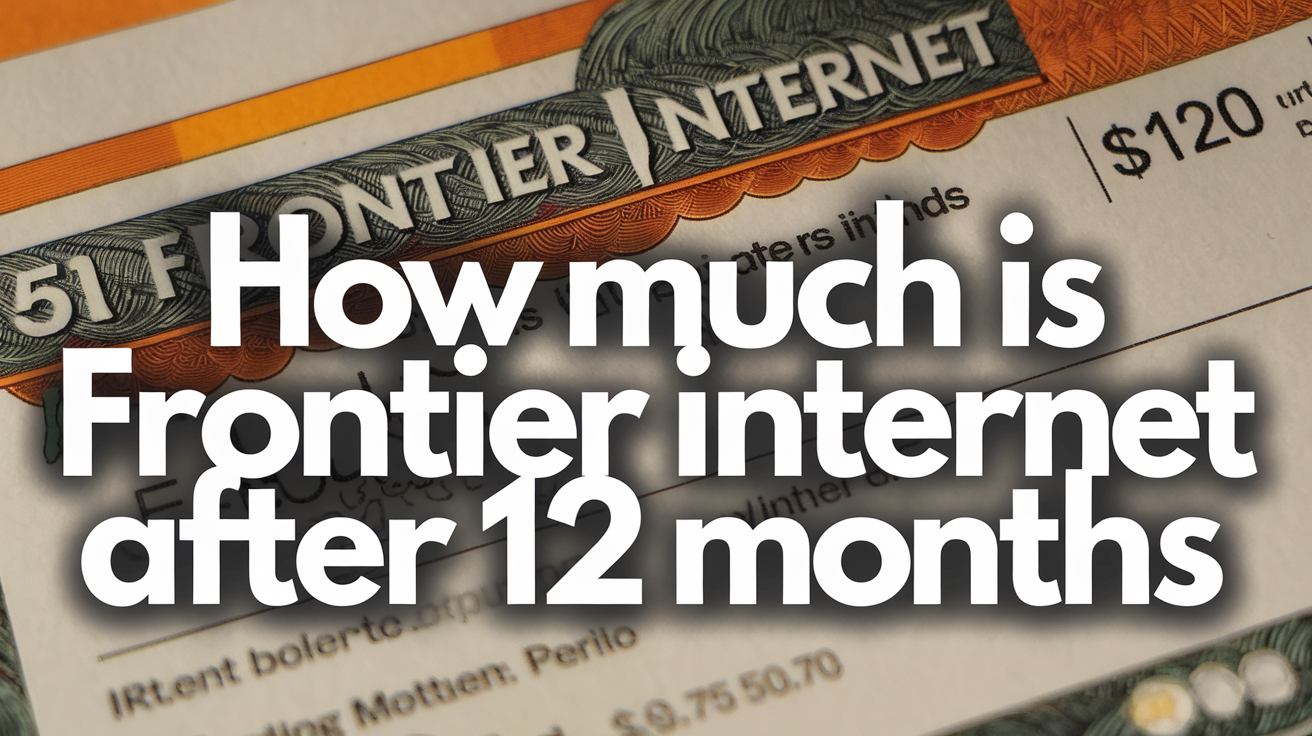The Future of Home Internet: Exploring Frontier's 5G Network

The Future of Home Internet: Exploring Frontier's 5G Network
The way we connect to the internet at home is evolving at breakneck speed. From the days of dial-up to the rise of fiber-optic networks, each leap forward has transformed how we live, work, and play. Now, as we stand in April 2025, the next frontier of home internet is knocking on our doors: 5 G. While Frontier Communications has long been a leader in fiber-optic and DSL services, whispers of its potential entry into the 5G home internet market are sparking excitement. Could Frontier’s 5G network redefine connectivity for millions of households? Let’s dive into what this could mean for the future of home internet.
The Rise of 5G Home Internet
First, let’s unpack what 5G home internet is and why it’s generating so much buzz. Unlike traditional broadband that relies on cables snaking through neighborhoods, 5G home internet uses wireless signals from cellular towers to deliver high-speed connectivity directly to your home. Powered by fifth-generation wireless technology, 5G promises faster speeds, lower latency, and the ability to connect more devices simultaneously compared to its predecessor,4 GG. For home use, this translates to a setup where a small receiver in your house picks up the 5G signal and broadcasts it as Wi-Fi—no trenches, no wires, just pure wireless freedom.
Providers like Verizon, T-Mobile, and AT&T have already rolled out 5G home internet in select areas, offering speeds rivaling cable and even fiber in some cases. So where does Frontier fit into this picture? Known for its extensive fiber network and rural DSL reach, Frontier has the infrastructure and customer base to make a bold move in5 G 5G. While the company hasn’t officially launched a 5G home internet service as of now, its expertise in connectivity and its mission to bridge the digital divide suggest it’s only a matter of time before Frontier explores this frontier.
Why Frontier Could Excel in 5G
Frontier Communications has a unique position in the ISP landscape. With a footprint spanning 29 states and a focus on both urban and rural markets, Frontier has spent years building a reputation for reliable internet. Its fiber-optic service, Frontier Fiber, already delivers symmetrical speeds up to 7,000 Mbps in select areas—proof of its commitment to cutting-edge technology. But fiber isn’t everywhere, and laying cables in remote regions is costly and time-consuming. Enter 5G: a wireless solution that could complement Frontier’s existing offerings and extend high-speed internet to places fiber can’t easily reach.
Imagine a rural household in Idaho or a small town in California, areas Frontier has historically served through its Connect America Fund efforts. These communities often struggle with slow DSL or no broadband at all. A Frontier 5G network could beam gigabit-speed internet to these homes using existing cellular towers, upgraded with 5G technology. Pair this with Frontier’s experience managing large-scale networks, and you’ve got a recipe for a service that’s both scalable and accessible.
Moreover, Frontier’s no-data-cap policy—a hallmark of its fiber and DSL plans—could carry over to 5G, setting it apart from competitors who throttle speeds or charge overage fees. Add in the company’s included equipment (like the premium routers it provides with fiber plans), and Frontier could deliver a plug-and-play 5G experience that’s as seamless as its wired offerings.
What Frontier’s 5G Network Might Look Like
So, what could Frontier’s 5G home internet look like in practice? Based on industry trends and Frontier’s current playbook, here’s a speculative peek:
- Speed Tiers: Frontier might offer tiered plans similar to its fiber lineup—say, 200 Mbps for casual users, 500 Mbps for families, and 1 Gbps or higher for power users. With 5G’s potential, speeds could even approach the multi-gigabit range in areas with strong tower coverage.
- Equipment: A sleek 5G receiver, possibly paired with a Wi-Fi 6E or 7 router, could sit on your windowsill, pulling in the signal and blanketing your home with fast Wi-Fi. Frontier’s track record of including equipment at no extra cost suggests this would be part of the package.
- Pricing: Frontier’s fiber plans start at $29.99/month for 200 Mbps, a steal compared to competitors. A 5G service might follow suit, with introductory rates around $40–$60/month, competitive with T-Mobile’s $50/month 5G Home Internet or Verizon’s $60/month offering.
- Availability: Leveraging its rural presence, Frontier could prioritize underserved areas, using 5G to leapfrog the limitations of DSL while expanding into urban markets where fiber competition is fierce.
This vision aligns with Frontier’s ethos of “Building Gigabit America,” a mission that emphasizes equitable access to high-speed internet. 5G could be the missing piece, bridging gaps where fiber deployment lags.
The Benefits of Frontier 5G for Homes
A Frontier 5G network wouldn’t just be about speed—it could reshape how we experience home internet. Here are some key benefits:
1. Flexibility and Ease of Setup
Unlike fiber or cable, 5G doesn’t require digging up your yard or scheduling a technician to wire your home. You’d get a receiver, plug it in, and connect. For renters, seasonal homeowners, or anyone who moves frequently, this portability is a game-changer.
2. Rural Reach
Frontier’s commitment to rural America could shine w5 Gh 5G. Where fiber is impractical, 5G towers could deliver broadband to remote areas, empowering communities with access to online education, telemedicine, and remote work—essentials in 2025’s digital world.
3. Low Latency for Gaming and Streaming
With latency as low as 1 millisecond, 5G could make buffering a distant memory. Gamers would enjoy lag-free sessions, while families could stream 4K—or even 8K—content on multiple devices without a hitch.
4. Smart Home Synergy
The Internet of Things (IoT) is exploding, from smart thermostats to security cameras. 5G’s ability to handle dozens of connected devices simultaneously could turn your home into a futuristic hub, all powered by Frontier’s network.
Challenges Frontier Might Face
Of course, launching a 5G network isn’t without hurdles. Frontier would need to navigate:
- Infrastructure Costs: Upgrading or building 5G towers requires a significant investment. While Frontier’s existing fiber backbone could support backhaul (the connection from towers to the broader internet), the upfront costs could strain its resources.
- Spectrum Availability: 5G relies on radio spectrum, a finite resource controlled by the FCC. Frontier would need to secure licenses, potentially competing with giants like Verizon and AT&T.
- Competition: T-Mobile and Verizon already have a head start in 5G home internet. Frontier would need to differentiate itself—perhaps through pricing, rural focus, or bundled services like YouTube TV, which it currently offers with fiber.
Despite these challenges, Frontier’s history of innovation, like its 25G PON trial with Nokia in 2021, shows it’s not afraid to push boundaries. A 5G pivot could be its next big leap.
The Bigger Picture: 5G and the Future of Connectivity
Frontier’s potential 5G network fits into a broader shift toward hybrid connectivity. Fiber will remain the gold standard for speed and reliability, but 5G offers flexibility and reach that wired solutions can’t match. Together, they could create a seamless ecosystem: fiber for urban cores, 5G for suburbs and beyond. Frontier, with its dual expertise in fiber and rural service, is uniquely poised to blend these technologies.
Looking ahead, 5G could pave the way for 6G by 2030, promising even faster speeds and holographic communication. Frontier’s entry into 5G now could position it as a leader when that next wave arrives.
Final Thoughts
The future of home internet is wireless, and Frontier Communications could be a dark horse in the 5G race. While it’s not yet official, a Frontier 5G network would align with its mission to connect America, offering a lifeline to rural homes and a competitive edge in crowded markets. With its fiber foundation, customer-first approach, and no-cap philosophy, Frontier has the tools to make 5G a reality worth watching.
Dial (844) 340-6366 to Get Frontier Internet Connection Today!




